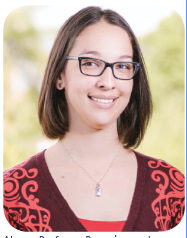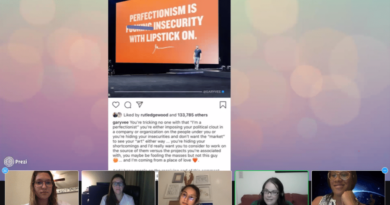BUILDING A SOCIAL IMPACT ECO-SYSTEM
Lynn has been actively formulating a social impact eco-system on campus to fully integrate the program into the university’s culture.
“[The university] is currently building a social impact eco-system through a variety of interrelated efforts. The main one, of course, is the building and inauguration of the Social Impact Lab, which officially launched on March 25,” said Antonella Regueiro, professor. “This space is meant to serve as a hub for all things social impact – the heart of change-making on campus.”
Since Jerry Hildebrand, the director of the Social Impact Lab, introduced social impact to Lynn in 2017, the university has been working extensively to find ways to incorporate it into all aspects of the Lynn community.
One of the main goals of the Lab has just been completed through the installation of the more than 10,000-square-foot state-of-the-art co-working space on the third floor of the Christine E. Lynn University Center. This space serves as an opportunity for mentors and coaches to work with students, all while seeking to find solutions as well as provide professional start-up consultations.
“Through programs such as the Ambassador Corps, the Civic Impact Corps, the UN Millennium Fellowships and more, the Lab seeks to embed social impact into the hearts and minds of Lynn’s community,” said Regueiro. “However, the integration of social impact cannot be successful unless it is holistic. It is here where the Social Impact Task Force rises as a promising effort for successful integration.”
The Social Impact Task Force is an interdisciplinary and cross-departmental effort to help students understand how social impact fits into Lynn culture. This task force is comprised of roughly one or two faculty members from various colleges across campus, as well as representatives from Student Affairs and Lynn’s student government, the Knights of the Roundtable (KOR).
The faculty leads for this initiative are Regueiro and Professor Timea Varga. In the College of Education, Professors Jennifer Lesh and Kelly Burlison serve as representatives. Professors Ben Samples and Amanda Wolcott oversee the College of Aeronautics and College of Business respectively.
Professors Martin Phillips and Scott LeBlanc lead for the College of Communication and Design, while April Watson and Wayne Law represent the College of Arts and Sciences.
The representatives of student involvement include Anita Vorreyer, assistant dean of students, and Jemsley Asselui, vice president of KOR.
“This is important because it is not only a faculty-led initiative, but it actually seeks to integrate other departments that have a vested interest in how social impact is incorporated into the school,” said Regueiro. “In addition, we thought it was important to have the voices of our students in this task force, because it allows them to have agency over what they want this process to look like at their school. Task force members are in one- or two-year rotations.”
The faculty members that joined the task force have already begun integrating social impact into their courses. However, their main role as a task force member is to go beyond their own classrooms and serve as liaisons to their colleges. The members are currently gathering data from other faculty members to determine what social impact activities are being conducted.
“The five main pillars that represent social impact at Lynn are personal development, academic/interdisciplinary collaboration, experiential learning, continued community engagement and professional development,” said Regueiro. “Together, these pillars encompass what the task force sees as the essential components for long-lasting and sustainable social impact in our communities.”




